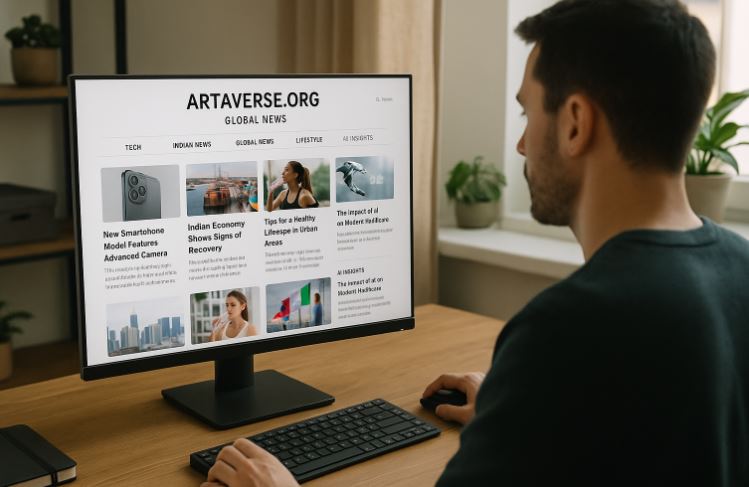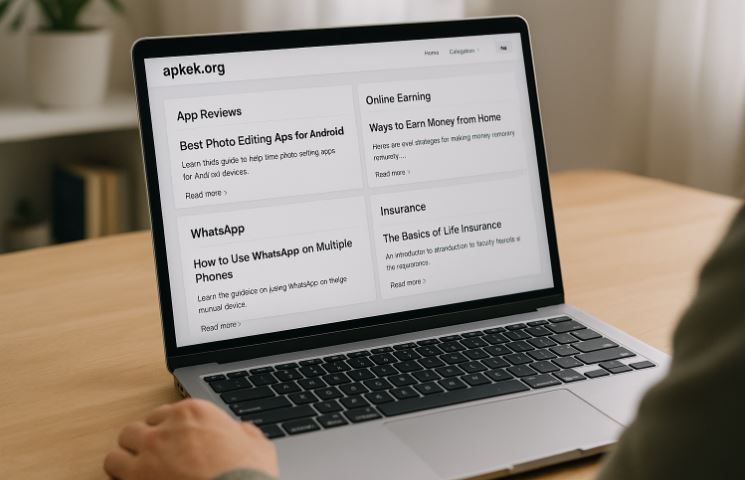Do you love starting your day with a steaming cup of coffee but worry about the side effects? You’re not alone. Many people enjoy their morning brew without realising that drinking coffee the wrong way can lead to digestive issues, jitters, or energy crashes.
Wellhealthorganic.com offers practical tips to help you enjoy your coffee without harming your health. This blog will guide you on how to make your coffee routine healthier, gentler, and more balanced every morning.
What Are The Health Risks Of Drinking Coffee On An Empty Stomach?

Many coffee lovers start their day with a hot cup of coffee even before they have breakfast. While this has become a habit for many, research and health experts, including those from Wellhealthorganic.com, highlight that drinking coffee on an empty stomach can pose several health risks.
When you drink coffee without eating first, your stomach produces more acid. This can lead to an irritated stomach lining, bloating, acid reflux, and in some cases, long-term digestive issues.
The caffeine stimulates hydrochloric acid production, which can negatively impact the gut, especially in sensitive individuals. Over time, regular coffee intake on an empty stomach may disrupt gut microbiota balance, which plays a crucial role in digestion and overall immunity.
Common Problems Caused By Coffee On An Empty Stomach
- Increased acid reflux and heartburn
- Upset stomach and bloating
- Jitters and nervousness
- Disrupted cortisol levels leading to stress
It is important to understand that while coffee offers many benefits like improved focus and alertness, the timing and context of consumption matter. Having it first thing in the morning without food can reduce the positive effects and amplify the side effects.
Why Should You Pair Your Coffee With A Healthy Breakfast?
According to Wellhealthorganic.com, pairing your morning coffee with a nutritious breakfast can significantly reduce its negative effects.
Food acts as a buffer and slows down the absorption of caffeine into your system, which can help prevent sudden spikes in energy followed by crashes.
A balanced breakfast that includes complex carbohydrates, protein, and healthy fats helps maintain blood sugar levels, preventing dizziness or lightheadedness that some people experience after drinking coffee.
Good Breakfast Options With Coffee
- Whole-grain toast with peanut butter
- Oats with nuts and fruit
- Eggs with whole wheat bread
- Yogurt with granola
When you consume coffee alongside a meal, you are also less likely to experience jitters or stomach discomfort. Additionally, having breakfast improves metabolism and prepares your body for better caffeine utilization, making your coffee more effective and enjoyable.
How Can You Choose The Right Time For Your Morning Coffee?

The timing of your morning coffee matters more than many people realize. Wellhealthorganic.com suggests waiting at least one to two hours after waking up before having coffee. This recommendation is based on the natural rise of cortisol, the body’s stress hormone, which peaks shortly after waking.
If you drink coffee while cortisol is at its highest, it can interfere with your body’s natural rhythm, potentially leading to increased anxiety, restlessness, and dependence on caffeine.
Waiting for cortisol levels to drop allows caffeine to work more effectively, offering a natural energy boost without unnecessary stress on the body.
Best Time To Drink Morning Coffee
- One to two hours after waking up
- Mid-morning when energy naturally dips
- After having a small meal or snack
By timing your coffee wisely, you can enjoy its benefits without overburdening your nervous system or causing an afternoon energy crash.
Wellhealthorganic.com : Morning Coffee Tips With No Side Effect
Wellhealthorganic.com emphasizes several actionable tips to enjoy your coffee without facing side effects. These tips are not about giving up coffee but about making small, mindful changes to your coffee routine.
Essential Coffee Tips
- Avoid drinking on an empty stomach
- Pair with a light, nutritious breakfast
- Drink water before and after coffee
- Limit added sugars and flavored creamers
- Choose quality coffee, preferably organic or low-acid types
- Stick to one or two cups per day to avoid overconsumption
By following these tips, coffee lovers can experience better focus, mood, and energy without the downsides of acidity, jitters, or digestive discomfort. Wellhealthorganic.com encourages coffee as part of a balanced lifestyle, not as a substitute for meals or hydration.
What Types Of Coffee Are Gentle On The Stomach?

For individuals with sensitive stomachs, the type of coffee you drink can make a big difference. Wellhealthorganic.com recommends choosing low-acid coffee blends or decaffeinated options if regular coffee causes discomfort.
Low-acid coffees are specially processed to reduce acid content, making them easier on the stomach while still offering rich flavor. Cold brew coffee, for example, is naturally lower in acid compared to hot-brewed methods.
Stomach-Friendly Coffee Options
- Low-acid coffee blends
- Cold brew coffee
- Decaf coffee
- Dark roast (lower acid than light roast)
Choosing the right type of coffee can significantly reduce the risk of acid reflux, stomach upset, and other discomforts associated with regular coffee consumption.
How Much Coffee Is Too Much According To Experts?
Experts, including those cited by Wellhealthorganic.com, recommend limiting caffeine intake to 200 to 400 milligrams per day, roughly one to two cups of brewed coffee.
Excessive caffeine consumption can lead to several side effects such as insomnia, nervousness, restlessness, increased heart rate, and digestive issues.
While occasional extra cups might not harm everyone, making high caffeine intake a daily habit can strain your nervous system, disrupt sleep patterns, and increase anxiety levels.
Signs You Are Drinking Too Much Coffee
- Feeling jittery or anxious
- Trouble sleeping
- Rapid heartbeat
- Upset stomach or acid reflux
- Dependence on coffee to function
By monitoring how much coffee you consume and being mindful of its effects on your body, you can avoid these common issues and maintain a healthy relationship with coffee.
Why Does Hydration Matter Before And After Coffee?

Hydration plays an essential role in balancing the effects of coffee on the body. Wellhealthorganic.com highlights the importance of drinking water before and after your morning coffee to protect the stomach lining and prevent dehydration.
Caffeine is a natural diuretic, meaning it can lead to increased urination and fluid loss. Without sufficient water intake, this can contribute to dehydration symptoms like headaches, dry mouth, and fatigue.
Drinking a glass of water before your coffee not only prepares your stomach but also helps counterbalance the diuretic effect.
Hydration Tips For Coffee Drinkers
- Drink a glass of water before coffee
- Have water alongside coffee or soon after
- Monitor hydration levels throughout the day
Proper hydration helps you enjoy your coffee without negatively impacting digestion or energy levels.
How Can You Reduce Sugar And Creamer For A Healthier Cup?
Many people unknowingly turn a healthy cup of coffee into a calorie-dense beverage by adding excessive sugar, flavored syrups, or heavy creamers. Wellhealthorganic.com advises limiting or eliminating these additives to keep your coffee as clean and healthy as possible.
Instead, opt for natural sweeteners like stevia or honey, or better yet, try drinking your coffee black or with a splash of plant-based milk. Not only does this reduce your sugar intake, but it also enhances the coffee’s natural flavors and aroma.
Tips To Cut Sugar And Creamer
- Use minimal or no sugar
- Choose plant-based milk or low-fat milk
- Avoid flavored creamers and syrups
- Try cinnamon or vanilla extract for natural flavor
Making these small adjustments can significantly improve the nutritional profile of your daily coffee habit.
What Lifestyle Tips Help Minimise Coffee’s Side Effects?
Enjoying coffee without side effects often comes down to simple lifestyle adjustments. According to Wellhealthorganic.com, adopting mindful coffee habits can make a noticeable difference.
Effective Lifestyle Tips
- Sip coffee slowly rather than drinking it quickly
- Avoid having coffee late in the day to protect sleep
- Combine coffee with light physical activity like a morning walk
- Listen to your body and adjust coffee intake if you notice negative effects
Being aware of how your body responds to coffee and making small changes to your routine can enhance your coffee experience while protecting your health.
What Are Natural Alternatives To Coffee For An Energy Boost?

While coffee is a popular choice for an energy boost, it is not the only option. Wellhealthorganic.com suggests exploring natural alternatives that provide gentle stimulation without the side effects of caffeine.
Herbal teas like green tea or matcha contain lower levels of caffeine along with antioxidants that support health. Warm lemon water can also help wake up your system and improve digestion without the stimulation of coffee.
Popular Coffee Alternatives
- Green tea or matcha
- Herbal teas like peppermint or ginger
- Warm lemon water
- Smoothies with spinach, banana, and protein
Exploring alternatives can offer variety and help reduce caffeine dependency over time.
Conclusion
Morning coffee can be a wonderful ritual that boosts mood, focus, and energy. However, as Wellhealthorganic.com wisely points out, when consumed carelessly, especially on an empty stomach or in excessive amounts, it can cause discomfort, digestive problems, and stress.
By following simple, practical tips like eating breakfast with your coffee, drinking water, choosing low-acid blends, and reducing sugar, you can enjoy coffee’s benefits without side effects.
Mindful consumption and listening to your body’s signals are key to making coffee a positive part of your lifestyle.
FAQs
What Happens If You Drink Coffee Without Eating?
Drinking coffee without eating can increase stomach acid, causing irritation, bloating, and acid reflux.
How Long Should You Wait After Waking To Drink Coffee?
It is recommended to wait one to two hours after waking before having coffee to avoid disrupting natural cortisol rhythms.
What Are The Best Foods To Eat With Coffee?
Good options include whole-grain toast, eggs, oats, yogurt with granola, or fruits, as they help balance caffeine absorption.
Can Drinking Water Help Reduce Coffee’s Side Effects?
Yes, drinking water before and after coffee helps protect the stomach lining and prevents dehydration.
How Many Cups Of Coffee Are Safe Per Day?
Most experts suggest one to two cups per day to stay within safe caffeine limits and avoid negative side effects.
Are Low-Acid Coffees Better For Sensitive Stomachs?
Yes, low-acid coffees and cold brews are gentler on the stomach and reduce the risk of acid reflux.
What Are Good Alternatives To Coffee For Energy?
Green tea, herbal teas, warm lemon water, and nutrient-rich smoothies are excellent natural alternatives to coffee.




